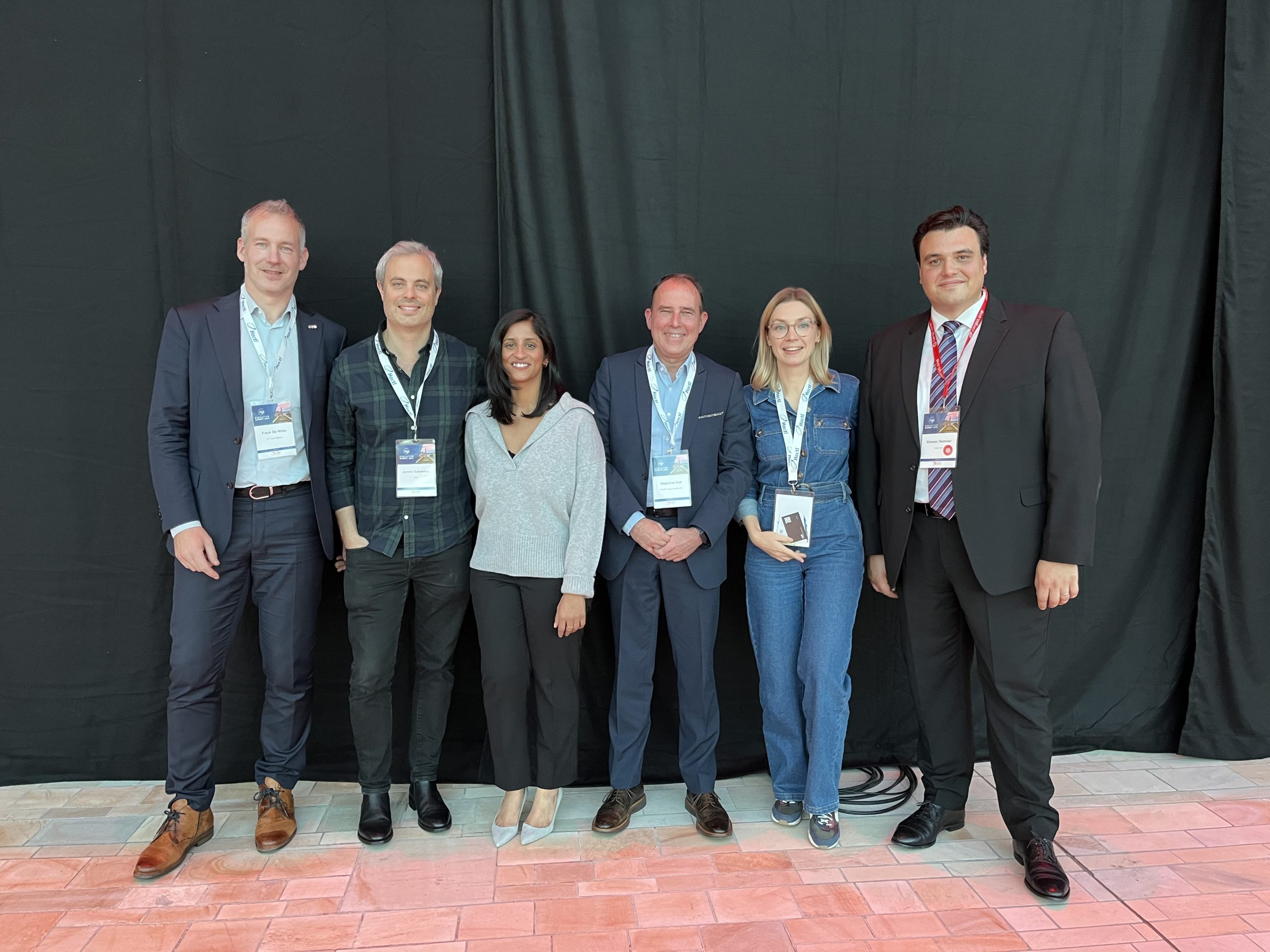Raft sees the benefit in human-centric technology
08 / 11 / 2023

Raft was at TIACA's Executive Summit this year. James Coombes is second from the left. Image Source: Raft
Raft co-founder and chief executive James Coombes has been at the Executive Summit of The International Air Cargo Association (TIACA) in Brussels, Belgium, this week.
He told delegates there that human-centric technology is key to the successful adoption of artificial intelligence (AI) across the global logistics industry.
AI creates the space necessary to foster and maintain human relationships – those relationships on which the logistics industry thrives, he said.
If AI is to be successfully adopted by logistics players, solutions will need to be found that enable forwarders and customs brokers to prioritise these human connections, he added, emphasising that freight forwarding is ultimately a relationships business, and that AI can be valuable in so much as it can free up time for forwarders and customs brokers to focus on the human elements of their work.
“While it’s true that AI holds tremendous potential, trust and human relationships are fundamental elements in logistics, and these emotional aspects are an area where AI has its limitations,” Coombes declared.
“The connections we build with our service providers, customers and partners are invaluable and irreplaceable.
“Our approach is to use AI to automate the more routine, lower-value tasks, allowing freight forwarders and customs brokers to concentrate on nurturing and enhancing these crucial relationships.”
If this approach is used, “Freight forwarders and customs brokers can take small steps to implement AI to address their operational pain points, recognise the immense value of this, and slowly build and scale their use of modern technology from there,” Coombes advised.
Raft’s chief growth officer, Lionel van der Walt, also spoke on the Sustainability panel that was a feature of the TIACA summit. He emphasised the benefits of adopting AI-driven solutions to prepare for upcoming sustainability regulations coming into effect across the EU in January 2024.
Last month (October), Raft’s chief technology officer, Nisarg Mehta, said in a speech that customs brokers would benefit from a shift to AI for data entry and discrepancy identification, according to logistics platform.
Speaking at the US Northern Border Customs Brokers Association (NBCBA) Fall Conference, Mehta outlined how AI can achieve greater levels of operational efficiency, accuracy and transparency.
“Imagine customs brokers shifting from manual data entry to using AI-driven solutions that automate this type of work and help them identify discrepancies in a timely way when every second on the clock counts,” Mehta said.
“Harnessing AI is not just about automation; it’s about elevating our ability to ensure compliance, bolster security and refine customer service.”
Raft is an intelligent logistics platform that embeds AI into workflows and standardises diverse data inputs – whether email content, EDI or API – to improve performance.
Established in 2017, today Raft serves 60 freight forwarders across more than 30 countries around the world. Its platform is used to execute over 300,000 shipments per month.














